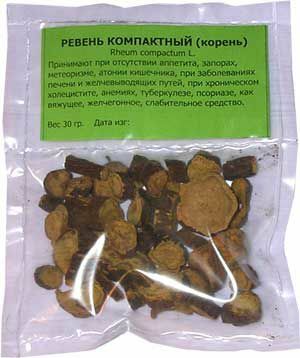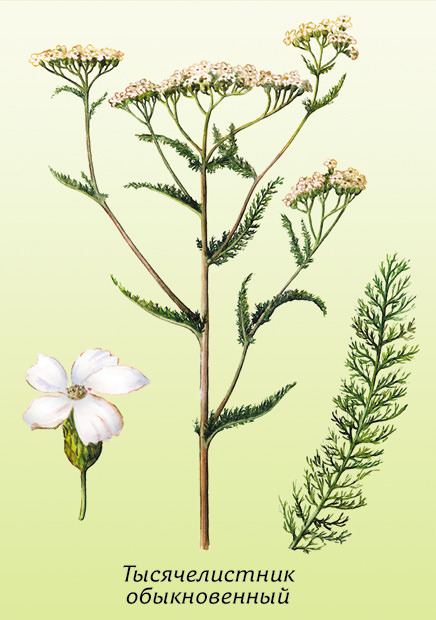A safe solution to the delicate problem - herbs from constipation
Herbs from constipation in adults are considered to be an effective and safe solution to the delicate problem in both folk and traditional medicine.
You can use such herbal preparations both separately and with complex therapy of constipation.
Since herbs are a strong drug, you should carefully read their principle of action and possible contraindications before use.
The article considers different types of herbs and recipes based on them for the treatment of stale stagnation.
Phytotherapy of constipations
Contents:
- Phytotherapy of constipation
- Herbal products with strong laxative effect
- Herbs with moderate laxative action
Everyone who has ever faced such an unpleasant disease as constipation tries to find a proven remedy for his treatment.
Not always the patient's condition allows you to resort to traditional medicines, in which case nature itself helps.
In folk medicine, it has long been known that many medicinal herbs are used for constipation in adults, since they have a laxative effect.
Such an effect on the body is due to the content in plants of special active substances - antrakligozidov, which when ingested in the gastrointestinal tract irritate the intestinal mucosa and stimulate peristalsis.
Video:
Many herbs have choleretic effect. Thanks to the stimulation of the outflow of bile, the work of the entire organism is adjusted, peristalsis and intestinal motility are improved.
Such herbs will be useful not only for constipation, but also for problems in the functioning of the liver and gallbladder.
Active substances and dietary fiber contained in herbal remedies help to remove toxins from the body.
With a stale stagnation there is a high likelihood of intoxication of the body and, in connection with this, a deterioration in the general condition of the patient, a rise in temperature, the appearance of nausea and vomiting.
The reception of herbs allows you to gently and quickly establish the process of defecation and exclude the possibility of severe intoxication.
Due to essential oils, vitamins and microelements contained in medicinal herbs, there is an improvement in peristalsis, removal of stagnation and intoxication caused by constipation.
Treatment of constipation with folk remedies is recommended to be performed under the supervision of a doctor. The fact is that a prolonged intake of herbal preparations can lead to an addiction of the body and a decrease in the sensitivity of the intestinal nerve receptors.
As a result, the effectiveness of using herbs is greatly reduced. In addition, exceeding the dosage of certain types of herbs can worsen a patient's condition due to toxins and poisonous substances contained in many herbs.
Video:
In small doses, they are not harmful to humans, but a violation of the regimen for taking drugs based on these plants can cause poisoning and strong intoxication of the body.
Medicinal herbs, which have a laxative effect, are conventionally divided into two groups: herbs with a strong laxative effect and herbs with a moderate laxative effect.
The first group includes Senna, buckthorn and rhubarb, the second group includes dandelion, yarrow, aloe and others.
Herbal products with a strong laxative effect
Herbal preparations with a strong laxative effect are prescribed to obtain a quick effect, they can be taken only once to relieve stale stagnation.
Prolonged use of such drugs can lead to impaired intestinal motility by reducing the sensitivity of the nerve receptors of its walls.
One of the most popular herbal constipation in adults is senna. Senna( Alexandria leaf, Cassia holly) is a small shrub with yellow flowers.
For the treatment of constipation, senna leaves containing anthraglycosides are used. Senna herb is prescribed for the treatment of constipation, the cause of which is atony of the intestine, and general cleansing of the body.
Senna is known and as a cholagogue, so it can be used in diseases of the liver and gall bladder.
For the treatment of constipation, decoctions and infusions from Senna are prepared. To prepare the infusion, you need to pour 1 tsp. Shredded leaves with a glass of water.
Infusion is left for a day, filtered and drunk before going to bed. The broth is prepared as follows: a tablespoon of dried leaves should be covered in 200 ml of water and left in a water bath for half an hour. The mixture is filtered and taken after eating.

To effective laxative herbs in constipation refers buckthorn, or loser zhoster, - a low tree with black berries.
Sour berries are very toxic, therefore in folk medicine only ripe fruits are used. The high content of anthraquinone derivatives in their composition provides the laxative effect obtained when taking funds based on the buckthorn.
Thanks to active pectins and flavonoids, fruits regulate the activity of the gastrointestinal tract, improve intestinal motility, and remove inflammation.
Use them very carefully, without exceeding the dosage.
Dried fruits of buckthorn are taken as a basis for laxative syrup or tea. To make a syrup, to 70 g of fruit juice add 130 g of sugar and bring the mixture to a boil.
This remedy can be given even to children under one year. Tea from the buckthorn is prepared from the calculation of 2 tsp.dried fruit on a glass of water. Berries are poured with boiling water and insist 10 minutes.
When atonic constipation is often prescribed the reception of a large amount of rhubarb. The laxative effect is caused by anthraglycosides entering the root of this plant.

In addition, taking medications based on rhubarb root has a beneficial effect on the work of the kidneys and intestines, promotes the outflow of bile and the reduction of flatulence.
You can take rhubarb in the form of powder, infusion or juice. Dosage is calculated individually, but remember that in small doses, the rhubarb root has the opposite effect and is used as an astringent for diarrhea.
Herbs with a moderate laxative effect
Herbs for the treatment of constipation include herbal remedies with a moderate laxative effect. The most popular are the nettle, dandelion, licorice, aloe and yarrow.
These herbs act more gently and gradually, so they are recommended for long-term use with chronic constipation.
The nettle leaf is famous not only for its haemostatic properties, but also for the ability to remove stool congestion gently and painlessly.
The effect of the remedy is gradual, taking a decoction of nettle should be at least two weeks.
Prepare such a decoction simply: dried nettle leaves pour water, bring to a boil and after a minute remove from heat. The resulting mixture strain and take half the glass at night.
Dandelion officinalis is widely known in the people as an effective laxative. Useful substances in its composition contribute to the outflow of bile and the removal of toxins from the body, which is very important for complex treatment of constipation.
Decoction of dandelion simply to prepare: 10 g of flowers pour 200 ml of water and boil on low heat for 10-20 minutes. The decoction, which is constant for half an hour, is drunk at 1 tbsp.l.3-4 times a day.

The laxative effect of licorice is provided by a large number of mucous substances and gums in its composition. As a medicine, the root part of the plant is used.
Drug based on licorice can be bought at the pharmacy or cooked independently. With chronic constipation, it is recommended to take an infusion of licorice root.
For its preparation, pour 1 tbsp.l.finely chopped root with a glass of hot water, cool and take three times a day.
Succulent aloe is actively used in folk medicine, including for the treatment of constipation. When atony intestine, you can apply aloe in the form of juice, gel or in capsules sold in a pharmacy.
To take aloe juice, you need 500 ml twice a day - in the morning and in the evening. In the same volume, once a day, you can take and diluted in any other juice aloe gel.
Capsules are taken three times per day according to the instructions on the package. Do not forget that aloe - a fairly serious drug, exceeding its dosage will lead to an additional burden on the kidneys and the entire gastrointestinal tract.
Closes the top five most popular herbal remedies with a moderate laxative effect yarrow.
Improvement of the intestine and stool retention when taking this herb is due to its choleretic effect.
In addition, yarrow relieves spasms, which is important for constipation of a spastic origin.
To prepare the infusion, 1 tsp. Herbs are poured with boiling water, insisted for several hours and take a third of the glass before eating.

All herbs with a laxative effect can be taken in the form of herbal remedies. Similar collections of Senna, buckthorn, nettle, yarrow are sold in pharmacies in filter packages with a ready-made dosage.
Before taking any folk remedies, you should check with your healthcare provider which herbs best help with constipation: many of them can be toxic if the dosage is incorrectly chosen, have contraindications or side effects.
Self-medication with constipation can lead to deterioration, intoxication and even poisoning, so do not hesitate to seek medical help from a competent specialist.



